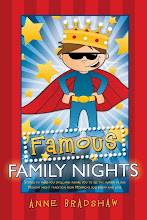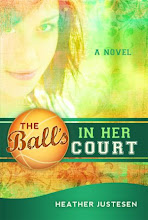Vigorous
writing is concise. A sentence should contain no unnecessary words, a paragraph
no unnecessary sentences, for the same reason that a drawing should have no
unnecessary lines and a machine no unnecessary parts. This requires not that the
writer make all his sentences short, or that he avoid all detail and treat his
subjects only in outline, but that every word tell.
— William
Strunk Jr.
in Elements of Style
Do
you write for your company? Newsletters? Emails? Grants? Copy for collateral?
If so, then everything you write reflects upon the company. Our words, both
spoken and written, create images that either build or hurt our brand.
Good grammar can instill confidence in your customers and employees. We
all make mistakes, but don't worry that the Grammar Police will arrest you or
fire you. Just pay attention to what you write before you send it out.

Below are a dozen words
that are commonly used incorrectly. Just a quick review of your writing can
avoid embarassing mistakes. Feel free to print this out and keep it by your
computer for future reference.
1.
The verb
“accept” means “to receive” or “to believe”.
The preposition except means other than.
The conjunction means “unless” and the verb means “leave
out.”
a.
Tim
accepted Jeff’s reason for being late for
work.
b.
Everyone –
except Chris and his supervisor – had remembered to switch to daylight savings
time.
c.
Only in
rare cases are employees excepted from the policy on
punctuality.
2.
Adverse
means “hostile, unfavorable, or harmful.”
Averse means “to have a definite feeling of
distaste.”
a.
Adverse
weather conditions grounded all airplanes.
b.
The tired
staff was averse to the idea of working till
midnight.
3.
Advice is a
noun that means “recommendation or information” and advise is a verb meaning “to
counsel or recommend.”
a.
Ralph advised me to value good advice.
4.
Affect is a
verb that means “to influence.” As a
noun, effect means “the result”; as a verb it means “to bring
about.”
a.
Your
performance in the coming year will directly affect the amount of your bonus.
b.
The effect
of the economy is hard to predict.
c.
The new
procedure will effect significant savings in time and
cost.
5.
Anxious
indicates that one is worrying; eager, that one is gladly anticipating
something.
a.
Sarah has never been anxious about speaking in public, but she was eager to play
the old hag in Snow White last month.
6.
Beside is a
preposition that means “next to.”
Besides is an adverb that means “in addition
to.”
a.
Put the
file cabinet beside the desk.
b.
Besides the
new cabinet, we need a new computer.
7.
Complement
means “to complete or go well with.”
Compliment means “to give praise.”
Both words can also be used as nouns.
The adjective complementary means “serving to fill out or complete.”
Complimentary means “given free as a favor.”
a.
That was a
nice compliment for a job well done.
b.
A fine
grape jelly is a complement to any peanut
butter.
8.
A
conscience gives one the capacity to know right from wrong. Conscious means “awake or alert, not sleeping
or comatose.”
a.
Your
conscience will guide you.
b.
Earl needs
two cups of coffee to be fully conscious at this
hour.
9.
Imply means
“to suggest, hint, or communicate indirectly”; infer means to “deduce or
conclude from.” (Writers and speakers imply.
Readers and listeners infer.)
a. I
thought she was implying that I would receive a raise; apparently I inferred
incorrectly.
10.
Lay means
“to put or place something.” It must be
followed by a direct object. (lay, laid,
laid)
a.
Please
don’t lay that report there.
b.
Jerri’s
assistant laid down the new carpeting
yesterday
Lie means “to rest or recline.” It does not take a direct object. (lie, lay,
lain)
c.
Tim likes
to lie down for a nap after lunch.
d.
He lay down
Monday at 12:30, but often he has lain down by
12:15.
11.
To precede
means “to go or come before,” while proceed means “to move on or go
ahead.”
a. A
note that preceded today’s meeting told us to proceed with part
two.
12.
“Than”
indicates a comparison and “then” refers to
time.
a.
Kevin
didn’t know any more about this than I did.
b.
First write
your resume. Then look for a
job.
b.
The tired
staff was averse to the idea of working till
midnight.
Trina Boice
www.TrinaBoice.com


















